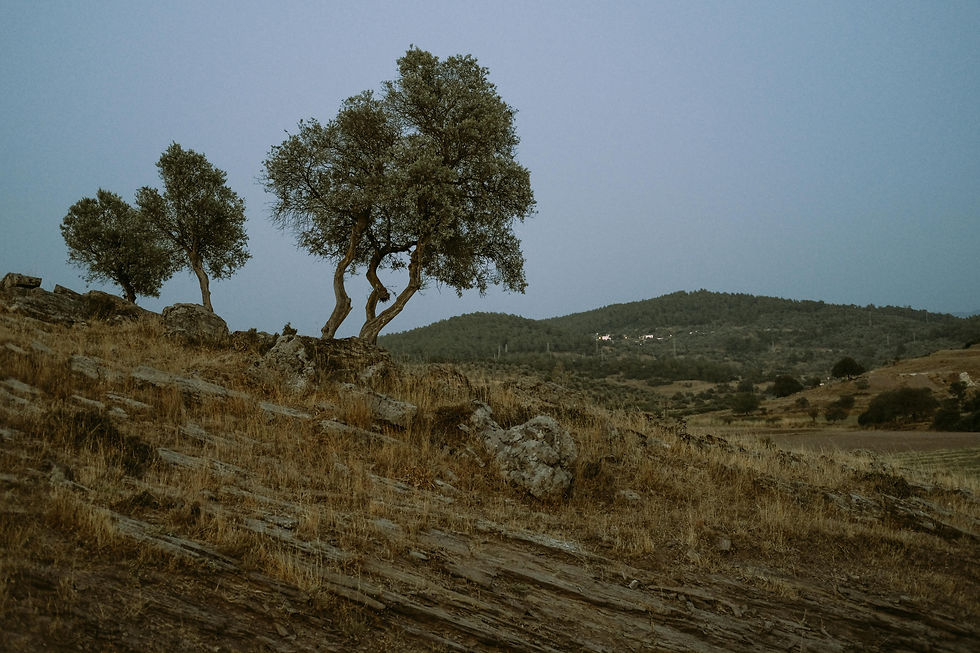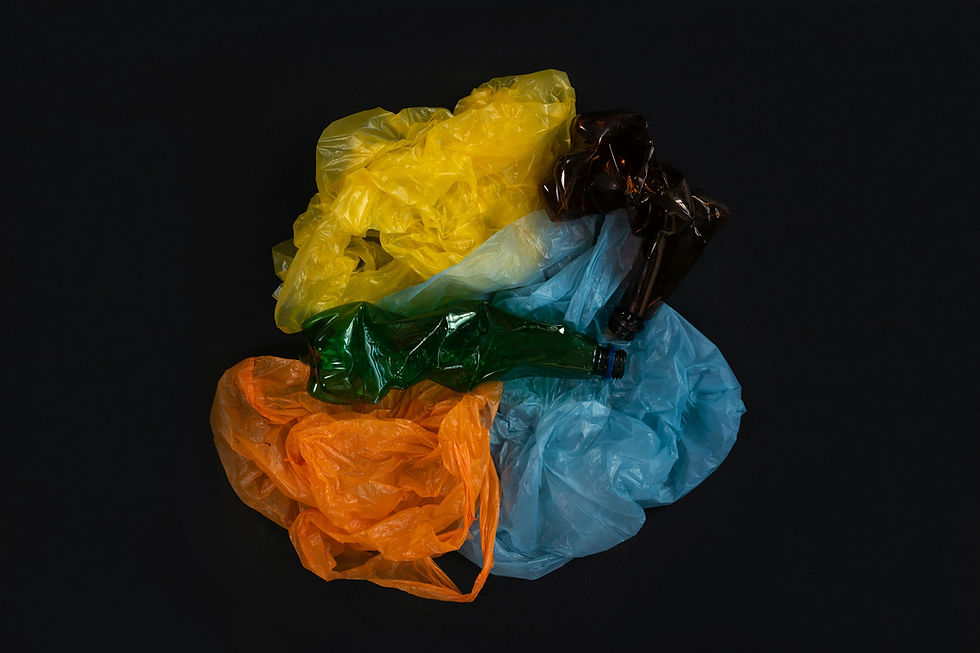Vaginas, Penises, and the Colonial Roots of Safeguarding
- Immaculate Kiiza Wanendeya

- Jul 25
- 6 min read

Safeguarding is about ensuring the safety, dignity, and rights of individuals, especially children and vulnerable populations. However, I have not yet come across a language in my country and home, Uganda, that can translate the word without telling stories. What does that tell us, or me for that matter, as a safeguarding consultant working in Uganda? I have found myself constantly wrestling with the language and frameworks that dominate the discourse, on top of dancing to translate and explain the word – and why it is necessary. Perhaps being an English-speaking country has made us lazy on our own devices.
It is very simple and educational for the majority of Ugandans to call our genitalia “private parts,” especially in the discourse of safeguarding, and we find it easy to name them in English, but heavens forbid we try them in our many different local languages! I would not want to repeat it in my local language for the utter shame it conjures – and this shame, I wonder, is it ingrained, conditioned, or indoctrinated? No wonder the lessons of safeguarding, consent, and protection for our children are blown away in the wind for most of us!
I am aware that safeguarding is not only about our physical being; it is about our environments, institutions, and everything that makes us human. But allow me to make some emphasis here. In many Ugandan cultures, direct references to genitalia are considered taboo. In Luganda, for instance, the term for penis, kasolo (literally "small animal"), carries connotations that can perpetuate harmful gender stereotypes. Similarly, the vagina is often referred to as sweet, a euphemism that reinforces notions of delicacy and submissiveness. These linguistic choices not only reflect societal discomfort but also influence attitudes towards sexuality and gender roles.
Even in the Idoma language of Nigeria, miles away from Uganda, similar patterns emerge, words for genitalia are often replaced with euphemisms to conform to moral standards and avoid social embarrassment. For example, instead of using the explicit term for vagina, speakers might say "between the legs of a woman.” Let’s put on our safeguarding hats and repeat the name given to the woman’s genitalia, and let us imagine we are speaking to a group of young girls and boys: what message are we sending!
To further paint this picture, in Uganda, the colonial echoes in the language of safeguarding are reverberating. Unfortunately, most safeguarding policies and training materials are written in English, using technical jargon shaped by Western legal and institutional frameworks. It does not help that English remains the official language and legacy of British colonial rule; it dominates legal, educational, and administrative domains, including safeguarding policies. This linguistic dominance often marginalizes local languages and knowledge systems. I will, for example, attest that my command of the English language is superior to my mother tongue, attributed to my educational background. I don’t, however, acknowledge this truth with pride. It is with regret. Where the language of power is not the language of the people, terms like "accountability," "informed consent," or even "safeguarding" itself have no direct equivalents in many Ugandan languages. It is no wonder we struggle!
In trying to answer this question (ever so briefly, how does language reflect colonial power in safeguarding documents and discourse?,) we know that language in safeguarding is not neutral. It is a product of historical and socio-political forces, often rooted in colonial legacies. Let’s face the facts, safeguarding frameworks and policies were largely developed in the Global North, using Western concepts of childhood, harm, vulnerability, and protection. Stemming from problems in the Global North, these frameworks have since been exported across the Global South through international aid and humanitarian systems, often with little regard for the cultural, historical, and linguistic contexts of the communities they are meant to serve. Adding more fuel to the fire, some of these Global South nations are English-speaking countries, and assuming understanding seems obvious, but it is not. English is still a language for the minority, who are privileged enough to get an education, and still heavily cloaked in colonial reflections.
This narrative is not written to blame or point fingers. It is to call our attention to what can happen if and when we (and yes, me, included!) leave things for too long, and my Justice Based Approach lens calls me to attention: How do we radicalize our systems to work for us? When do we actually call for the most affected to be most involved?
The language so often used in my own delivery often reflects colonial power in safeguarding. Terms like “child protection,” “duty of care,” “vulnerability,” or “safe spaces” carry Western assumptions about family structures, power dynamics, and what constitutes harm. This is not wrong; it just doesn’t apply to my language, and as such this universal framing can marginalize or erase Indigenous systems of care and community protection.
Safeguarding policies are also typically written in English or other colonial languages, and as such, local actors are expected to absorb and implement these policies, reinforcing the top-down model of knowledge production. It will take Radical Systems, Everyday Activism and more to embed local knowledge, practices, and child-rearing norms that are often excluded or labeled as inferior or problematic, to turn the tide. In addition, the passive framing of harm, often framed as isolated or individualised rather than systemic (for example, "incidents" are “investigated,” rather than confronting how poverty, patriarchy, and displacement intersect to create vulnerability) underscores this legacy of colonialism.
On the question of translation (“What happens when we translate safeguarding concepts into local languages—what is lost or gained”?), translating safeguarding concepts into Luganda, Acholi, Runyankole, or other local languages can be both liberating and limiting. On the one hand, it makes ideas more accessible and grounded in familiar cultural narratives and expressions. For example, translating “protection from harm” into a concept like okukuuma abaana (to protect the children) in Luganda evokes a community duty rooted in care and interdependence, but take keen note that “harm” has not been rendered in that translation. On the other hand, some key safeguarding principles risk dilution or distortion. For instance, the concept of “consent” becomes tricky in cultures where elders or community leaders are the default decision-makers. Likewise, translating “gender-based violence” may invoke different interpretations, sometimes framed as “discipline” or “marital issues,” which could reinforce harmful norms if not carefully unpacked. The question of how, when, and to whom you unpack these simple translations takes us back to the dance that I spoke of at the start.
As a trainer, my dilemma is presented in layers. First, I have to translate the concepts of safeguarding not only for others but for myself. Even as a self-professed, well-written, well-spoken, English-speaking Ugandan, I constantly have to battle with some very crucial questions: What does “do no harm” mean in a context where silence and obedience are cultural virtues? How do I explain “safe spaces” to someone whose whole village is both their sanctuary and their risk zone? How do I navigate these sensitive and yet crucial parts of people’s lives and get to the point without putting on my dancing shoes?
I have slowly learned to approach training not as a transfer of knowledge, but as a co-creation of meaning. This means inviting stories, asking questions, and being willing to unlearn. In one training, a village elder described safeguarding as okwetegereza abaana n’okubayambako mu mpola, “observing children and helping them gently.” This simple phrase captured the heart of child protection more powerfully than any policy document I had ever read!
Truly Transformative Safeguarding cannot be detached from the language used to define and implement it. If the language reflects colonial histories and Western dominance, so too will the practice. To decolonize safeguarding, we must reimagine it through locally-rooted lenses, honoring Indigenous systems of protection, listening deeply to the languages of care that already exist, and creating space for communities to define what safety truly means for them. We need to make deliberate efforts to value and integrate local languages and knowledge systems, including translation, community engagement, and education policies that promote multilingualism – creating policies in local languages from the start, not as an afterthought, valuing community wisdom and Indigenous practices of care, training facilitators who can navigate between cultures and languages with sensitivity and respect, and encouraging multilingual dialogue where safeguarding becomes part of everyday talk, not just formal training. By doing so, safeguarding practices can become more inclusive, effective, and culturally resonant. I truly believe that English is not and should not be the measure of intelligence, and yet in my experience, it has always been the yardstick.
Immaculate Kiiza Wanendeya is a Fellow of United Edge’s Justice Collective and a transformational leader currently working with Chance for Childhood as the Country Representative. She is a passionate advocate for child rights, inclusive safeguarding, and holistic growth. Based in Uganda, she works with communities through justice-based, culturally grounded frameworks, strengthening protection systems and amplifying local voices in safeguarding discourse through her consultation work.









This is such a powerful and thought-provoking piece—thank you, Immaculate, for naming truths that are often felt but rarely spoken out loud in safeguarding discourse. Your reflections on the role of language, cultural shame, and colonial legacies in shaping how safeguarding is understood (or misunderstood) in Uganda and other post-colonial contexts are deeply resonant. The candid way you describe your personal struggle as a trainer—constantly “dancing” to find the right words—is something many practitioners will identify with but few are brave enough to articulate.
I especially appreciated your call to reimagine safeguarding as a co-created, locally-rooted process rather than a top-down policy export. That quote from the village elder—“okwetegereza abaana n’okubayambako mu mpola”—was profoundly moving and reminded me how muc…